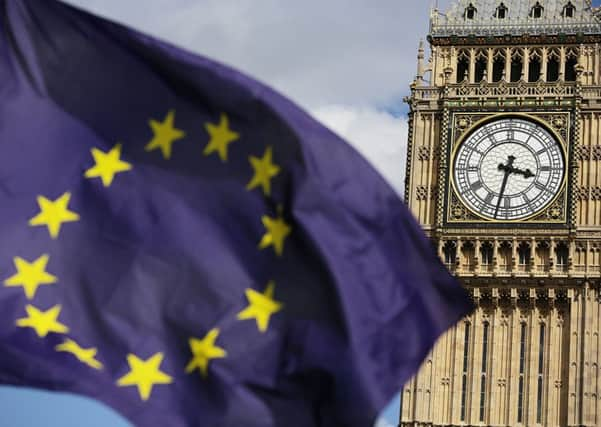Brexit is a textbook example of how not to do politics


With the countdown to Brexit now measured in days we have a government that cannot depend on the support of its own MPs and an opposition in a similar position. The prime minister alone does not get the message that the EU will not reopen negotiations. We now have a text book example of how not to do politics – a twist on the old joke of asking for directions and being told that starting from here is not the way to get to where we want to be. Having spent a lot of time in Brussels, I cannot believe an experienced official ‘accidentally’ revealed the government’s position in a hotel bar frequented by journalists. That does not happen and this was a coded way to say that ‘no deal’ is off the table.
With time so short a delay to the Brexit date looks inevitable. Theresa May keeps insisting this will not happen. But hemmed in between members of her own party saying no, a parliament rejecting the no deal option and a European Commission refusing to reopen the departure deal it is hard to see what other option she will have. In reality she is in a strong position to do so. She has public sympathy for her efforts, even if they are doomed to fail, and despite Brexit is still comfortably ahead of Jeremy Corbyn in all the popularity and competence polls.
Advertisement
Advertisement
In these high politics the interests of farmers have been forgotten. This reflects the problem of Brexit being a political decision, when it would have been more logical to make the choice on economic grounds.
All farmers can do now is be as efficient as they can at what they do, and remember that for years they have implemented whatever decisions politicians deliver. This has been the case with successive CAP reforms, and even further back over the move from a UK support structure pre-1973 to the CAP. They will do so again, whatever Brexit delivers. However farmers have a right to an opinion on the options now on the table, even if politicians are dismissing their concerns on the grounds that they know better.
In broad terms the options being talked about are no deal, the withdrawal deal and a customs union with the EU. Other ideas and compromises around at Westminster are variations on these three core ideas. We know from the farming lobby, and indeed all of UK industry, that no deal would be the worst possible outcome, especially for the farming industry here. The farming lobby across the UK is united in that view, and we are safe assuming they know what they are talking about while politicians do not and do not care. If we end up with this by default agriculture here will lose European markets and be squeezed in the UK by imports of no tariff cheap food to head off public criticism of a no deal outcome.
Remaining in a customs union would get around a lot of problems. But it would create new ones, in the shape of having to continue to meet cross compliance rules without any say over the shape of the new CAP. However over Brexit there are really no clear good or bad outcomes – we are talking in terms of least worst options. If a customs union moves up the agenda farmers will have to decide whether it is better or worse than no deal. One of the promises of Brexit is that freedom to conclude trade deals would boost the UK economy. However, as things stand, we gain from EU trade deals in almost all the markets the UK wants to pursue.
Advertisement
Advertisement
Unlike EU deals those concluded by the UK would probably be based around zero tariffs on food imports and that could never be a good outcome for agriculture. Farmers have a history of making political decisions work – but when those mean cheap food undercutting our markets no response could counter that threat.